2024 Program Schedule
The Annual Symposium of the Institute for Sustainable Energy and Environment will be held October 16-18, 2024.
Location:
Virginia Commonwealth University
Engineering Research Building, Room 1313
401 W. Cary St, Richmond, VA
Wednesday, October 16
4:30 - 6:30 p.m.
Registration and Reception / Poster Session
7:00 - 8:00 p.m.
Public Lecture – A Joint Event with the Provost Lecture Series
*Located in STEM Room 216
817 W Franklin St, Richmond, VA 23220
Harriet Kung, Acting Director, Office of Science, Department of Energy - “Science for Energy”
The 21st century brings with it staggering challenges for more advanced energy technologies that are abundant, clean, and sustainable. Transforming the ways we generate, supply, transmit, store, and use energy are the paramount opportunities for the world in the coming decades. To convert sunlight to fuel, store energy efficiently or enable a new generation of energy production and utilization technologies requires the development of new materials and processes with unprecedented functionality and performance.
This talk will provide an overview of DOE’s Office of Science, which has a mission of delivering scientific discoveries and major scientific tools to transform our understanding of nature and advance the energy, economic, and national security of the United States. The DOE Office of Science is the nation’s largest federal sponsor of basic research in the physical sciences and for decades has been a major supporter of research in such key scientific fields as physics, materials science, and chemistry. Along with the DOE National Laboratory System, the Office of Science is working to ensure U.S. leadership in science and innovations.
This talk will also cover a key aspect of our portfolio in critical and emerging technologies, such as artificial intelligence (AI), quantum, microelectronics, and fusion. These technologies will be a major source of new discoveries and breakthroughs, strengthen our economic prosperity, and increase access to clean, reliable, and affordable energy.
.jpg) Dr. Harriet Kung is the Acting Director of the Office of Science in the U.S. Department of Energy. She also serves as the Deputy Director for Science Programs and is the senior career official providing scientific and management direction and oversight for the SC research programs, including Advanced Scientific Computing Research, Basic Energy Sciences, Biological and Environmental Research, Fusion Energy Sciences, High Energy Physics, and Nuclear Physics, as well as other supporting functions and offices. Dr. Kung served in various leadership roles in Basic Energy Sciences, the largest program in the Office of Science, from 2002 - 2020. Before joining DOE in 2002, Dr. Kung was a technical staff member and a project leader at Los Alamos National Laboratory. Her research focused primarily on nanoscale materials and high temperature superconductivity.
Dr. Harriet Kung is the Acting Director of the Office of Science in the U.S. Department of Energy. She also serves as the Deputy Director for Science Programs and is the senior career official providing scientific and management direction and oversight for the SC research programs, including Advanced Scientific Computing Research, Basic Energy Sciences, Biological and Environmental Research, Fusion Energy Sciences, High Energy Physics, and Nuclear Physics, as well as other supporting functions and offices. Dr. Kung served in various leadership roles in Basic Energy Sciences, the largest program in the Office of Science, from 2002 - 2020. Before joining DOE in 2002, Dr. Kung was a technical staff member and a project leader at Los Alamos National Laboratory. Her research focused primarily on nanoscale materials and high temperature superconductivity.
With over 20 years of service in the Department of Energy, Dr. Kung led and cultivated one of the Nation’s premier physical sciences programs. During her tenure, she developed a new basic research paradigm in team-science approach to advance DOE’s science and energy missions by spearheading a decade-long strategic planning initiative to assure timely, science-based solutions. She also positioned the Office of Science as a National Quantum Initiative leader by establishing strategies to capitalize on strong synergy between disciplines such as physics, biology, materials, and engineering, as well as the world-leading scientific user facilities. She has chaired and co-chaired high-level interagency working groups to develop and implement national science priorities.
Dr. Kung received her M.S. and Ph.D. degrees from Cornell University. She is the recipient of numerous awards including the Presidential Meritorious Executive Rank Award in 2009 and the Distinguished Executive Rank Award in 2022.
Thursday, October 17
8:30 - 8:40 a.m.
Inaugural Session
Chair: Catherine Ingrassia, Dean and Professor, College of Humanities and Sciences, Virginia Commonwealth University
Opening Remarks by Puru Jena, Director, Institute for Sustainable Energy and Environment, Virginia Commonwealth University
8:40 - 8:50 a.m.
Welcome Address
Michael Rao, President, Virginia Commonwealth University
8:50 - 9:50 a.m.
Keynote Address
Daniel Nocera, Patterson Rockwood Professor of Energy, Harvard University - “Invention to Address the Global Energy Challenge”
Living healthy on a dying planet—we are a world out of balance. Relying on science to improve the health of the individual with the design of new drugs and therapies, we are neglectful of the health of our humanity at a global level. Disease indeed does compromise humankind’s very existence … but it is not disease inflicted on humans … rather it is the disease inflicted by humans on our planet and the response of her immunological system on us. Climate change continues to outpace the implementation of renewable energy at an alarming rate. In addressing the global energy challenge, research discovery confronts two worlds: a world with a large energy infrastructure already in place (the legacy world) and a world with little to no energy infrastructure (the nonlegacy world).
Consequently, in addressing the energy challenge, research must be cognizant of these two different energy worlds as they give rise to different targets. In the legacy world, the fastest path to implementing renewable energy is to integrate discovery with the established infrastructure.
This talk will touch on the creation of the coordination chemistry flow battery, which allows for massive grid storage, and the path from bench to commercialization will be presented. On the other end of the spectrum is the non-legacy world. As will be shown, it is the non-legacy world that will drive future global energy need. Thus, this is the most important target for renewable energy to mitigate global carbon emissions. Two inventions will be presented: the Artificial Leaf and the Bionic Leaf, which produce food and fuel in a distributed and sustainable way using only sunlight, air and water. These discoveries are particularly useful to the poor of the world, where large infrastructures are not tenable.
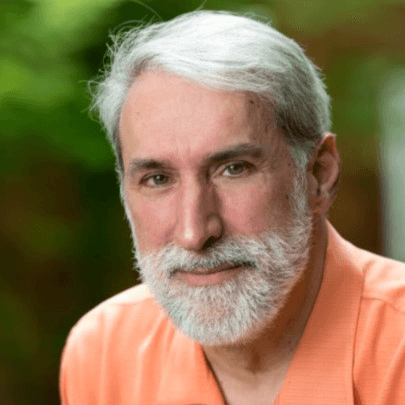 Daniel G. Nocera is the Patterson Rockwood Professor of Energy at Harvard University. Nocera is recognized for his discoveries in renewable energy, originating new paradigms that have defined the field of solar energy conversion and storage. Nocera created the field of proton coupled electron transfer (PCET) at a mechanistic level by making the first measurement that allowed an electron and proton to be timed and on this experimental foundation, he provided the first PCET theory. Within this framework, he is the inventor of the Artificial Leaf and the Bionic Leaf, which uses only air, water and sunshine as inputs to create biomass, liquid fuels and fertilizer at energy efficiencies that are 10 to 100 times greater than natural photosynthesis.
Daniel G. Nocera is the Patterson Rockwood Professor of Energy at Harvard University. Nocera is recognized for his discoveries in renewable energy, originating new paradigms that have defined the field of solar energy conversion and storage. Nocera created the field of proton coupled electron transfer (PCET) at a mechanistic level by making the first measurement that allowed an electron and proton to be timed and on this experimental foundation, he provided the first PCET theory. Within this framework, he is the inventor of the Artificial Leaf and the Bionic Leaf, which uses only air, water and sunshine as inputs to create biomass, liquid fuels and fertilizer at energy efficiencies that are 10 to 100 times greater than natural photosynthesis.
He is a member of the American Philosophical Society, American Academy of Arts and Sciences, the U.S. National Academy of Sciences and the Indian Academy of Sciences. He was named as Time Magazine’s 100 Most Influential People in the World and was 11th on the New Statesman’s list on the same topic. He founded Sun Catalytix, which was acquired by Lockheed Martin, leading to the largest flow battery in the world for grid scale storage and founded Kula Bio for the commercialization of a living biofertilizer for renewable and distributed farming and land restoration.
9:50 - 10:30 a.m
Coffee Break/Posters
10:30 a.m. - 12 p.m.
Session I: Panel - Global Challenges on Sustainable Energy and Environment
Moderator: John Byrne, Director and Distinguished Professor of Energy and Climate Policy, University of Delaware
Panelists
- Peter Lund, Professor of Applied Physics and Advanced Energy Systems, Aalto University, School of Science, Finland
- Nqobile Xaba, Research Faculty Member, Mapungubwe Institute for Strategic Reflection, South Africa
- Fotis Sotiropoulos, Provost and Senior Vice President for academic affairs, Virginia Commonwealth University
John Byrne
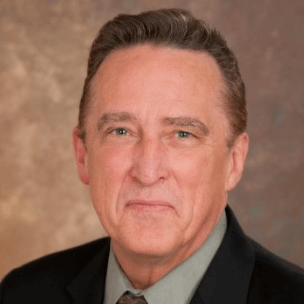 Distinguished Professor and Director of the Center for Energy and Environmental Policy at the Biden School of Public Policy, University of Delaware, Professor Byrne created the University's Energy and Environmental Policy Graduate Program in 1996, the first U.S. graduate degree-granting program in the combined field of energy and environment. He is also President of the Foundation for Renewable Energy & Environment, which was created in 2011 to promote just and sustainable futures. From 1991 to 2014, he served as a contributing author and expert reviewer to the Intergovernmental Panel on Climate Change (the IPCC was awarded the 2007 Nobel Peace Prize).
Distinguished Professor and Director of the Center for Energy and Environmental Policy at the Biden School of Public Policy, University of Delaware, Professor Byrne created the University's Energy and Environmental Policy Graduate Program in 1996, the first U.S. graduate degree-granting program in the combined field of energy and environment. He is also President of the Foundation for Renewable Energy & Environment, which was created in 2011 to promote just and sustainable futures. From 1991 to 2014, he served as a contributing author and expert reviewer to the Intergovernmental Panel on Climate Change (the IPCC was awarded the 2007 Nobel Peace Prize).
Dr. Byrne is co-editor in chief of the invitation-only journal, WIREs Energy and Environment, a reference work published by Wiley & Sons. Since 1983, he has been the editor of the book series Energy and Environmental Policy, published by Routledge. His recent books for the series include: Green Energy Economies, Energy and Environment: The Policy Challenge, Environmental Justice, and Transforming Power. In Rethinking Environmentalism: Linking Justice, Sustainability, and Diversity (2018, MIT Press), he collaborated with leading scholars in assessing key challenges to the field’s future. He has published 19 books and over 200 academic articles and book chapters.
Peter D. Lund
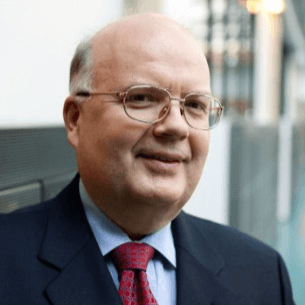 Dr. Peter D. Lund is Professor of Advanced Energy Systems and Engineering Physics at Aalto University (Finland), where he initiated multidisciplinary energy science education. He has extensively written on clean energy systems and strategies. He is most well-known for his contributions to energy transition systems analysis and multidisciplinary issues, and nanomaterials for new energy devices. He held visiting positions in Germany and China.
Dr. Peter D. Lund is Professor of Advanced Energy Systems and Engineering Physics at Aalto University (Finland), where he initiated multidisciplinary energy science education. He has extensively written on clean energy systems and strategies. He is most well-known for his contributions to energy transition systems analysis and multidisciplinary issues, and nanomaterials for new energy devices. He held visiting positions in Germany and China.
His research has been published in leading energy journals such as Energy and Environmental Science, Advanced Materials, ACS Energy Letters, Applied Energy, Renewable Energy and Energy. He has co-edited several volumes, lastly Advances in Digitalization and Machine Learning for Integrated Building-Transportation Energy System (Elsevier 2024).
He was elected Member of Swedish Engineering Academy in Finland in 1998 and Member of Finnish Academy of Science and Letters in 2018. He chaired the Advisory Group on Energy of European Commission 2002-2006 and the Energy Steering Panel of European Academies Science Advisory Council 2013-2017, co-chaired European Academies’ science advice on energy transition to the leadership of the E.C. 2019-2021. He was vice-chair of the Finnish Climate Change Panel 2019-2023 providing scientific advice for policy-making. He is Co-Editor-in-Chief for Interdisciplinary Reviews: Energy & Environment (Wiley), Editor-in-Chief of Oxford Open Energy (OUP).
Nqobile Xaba
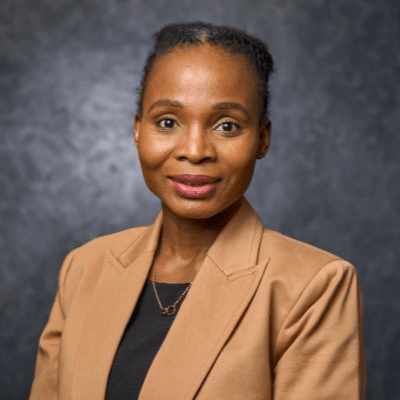 Dr. Nqobile Xaba is a researcher at the Mapungubwe Institute for Strategic Reflection (MISTRA) in the Knowledge Economy and Scientific Advancement faculty. She is also a Senior Research Fellow at the Foundation for Renewable Energy and Environment. Her work focuses on the just energy transition in South Africa, and the broader climate change issues.
Dr. Nqobile Xaba is a researcher at the Mapungubwe Institute for Strategic Reflection (MISTRA) in the Knowledge Economy and Scientific Advancement faculty. She is also a Senior Research Fellow at the Foundation for Renewable Energy and Environment. Her work focuses on the just energy transition in South Africa, and the broader climate change issues.
She works with diverse teams globally, researching Africa’s energy needs in the context of an evolving climate landscape and the socio-economic implications for South Africa’s energy transition. She has published her work on renowned scientific journal articles, has contributed book chapters and opinion editorial articles.
Fotis Sotiropoulos
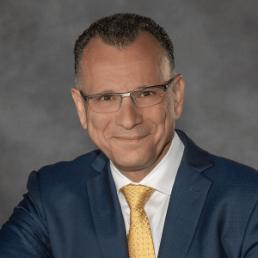
Fotis Sotiropoulos, Ph.D. became VCU’s provost and senior vice president for academic affairs on Aug. 1, 2021. He holds an academic appointment as professor of mechanical and nuclear engineering in the VCU College of Engineering.
In his role as provost, Dr. Sotiropoulos is responsible for creating and implementing the academic priorities for the university. He works closely with academic deans, faculty and other leadership within the university to ensure a safe, high-quality learning experience for all VCU students.
Dr. Sotiropoulos also leads faculty recruitment and retention efforts, ensuring that VCU's diverse, outstanding faculty are supported and well-prepared to serve our students' needs.
12:00 - 2:00 p.m.
Lunch/Posters
2:00 - 3:30 p.m.
Session II: Clean Energy Generation and Storage
Chair: Azim Eskandarian, Dean and Professor, College of Engineering, Virginia Commonwealth University
Speakers:
- Prashant V. Kamat, John A Zahm Professor of Science University of Notre Dame - “Transforming Next Generation Photovoltaics with Semiconductor Nanostructures”
- Ram Gupta, Professor and Associate Dean for Research, College of Engineering, Virginia Commonwealth University - “Battery Technology and Sustainability”
- Indika Arachchige, Associate Professor of Chemistry, Virginia Commonwealth University - “Bimetallic Transition Metal Phosphide Nanostructures as High-Efficiency and Earth Abundant Catalysts for Electrochemical Water Splitting”
Transforming Next Generation Photovoltaics with Semiconductor Nanostructures
Prashant V. Kamat
Silicon photovoltaics are regarded as part of green energy technology. However, they carry significantly longer (as high as 3 years) energy payback time. Semiconductor nanostructures are finding new ways to design light energy conversion devices (e.g., thin film solar cells and light emitting devices). The thin film design enabled through low temperature processing decreases the energy payback time. The decreased consumption of energy during the manufacture and the lessened use of semiconductor materials lowers the overall carbon footprint with energy payback time less than a year. The early studies focused on the synthesis of various semiconductor nanostructures and exploration of their size dependent optical and electronic properties. Careful engineering efforts in recent years have led to their integration in high efficiency thin film solar cells. Metal halide perovskite solar cells, in particular can now deliver efficiencies greater than 26%, thus matching the power conversion efficiency of silicon solar cells. Recent developments in utilizing semiconductor quantum dots for light energy conversion devices and how they can influence decreasing carbon footprint will be discussed. Efforts are needed to address the stability issues, to assess environmental impacts and to transform current practices of energy utilization.
Battery Technology and Sustainability
Ram Gupta
The rapid expansion of global electric vehicle (EV) market has increased the production of high-performance Li-ion batteries (LIB). The global LIB market is predicted to be reached up to $91.9 billion by 2026. Hence, sustainable production of Li-ion battery (LIB) is critically required to ensure cost-effectiveness, environmental benignity, consumer friendliness and social justice. Presently, worldwide LIB research is primarily focusing on few of the following areas: (i) Cobalt is the costliest element used for LIB cathode production, which is also responsible for severe environmental and socio-political issues. Hence, efforts are made to produce the low cobalt (such as NCM811) or cobalt free cathodes (LFP) cathodes; (ii) Development in the field of continuous and scalable manufacturing technology of electrode materials is also getting importance to improve the production efficiency and reduce the waste generation; (iii) High performance anode (such as Si) manufacturing to improve the energy density; (iv) Development of fast charging LIB in terms of both material and infrastructure aspect to reduce the mileage anxiety, (v) Solid-state LIB manufacturing to improve the energy density and safety and reduce the cost, and (vi) Cathode recycling to mitigate the supply-chain constraints and ensure the circular economy. These crucial aspects of LIB manufacturing will be included in this presentation.
Bimetallic Transition Metal Phosphide Nanostructures as High-Efficiency and Earth Abundant Catalysts for Electrochemical Water Splitting
Indika Arachchige
Electrocatalysis-enabled water splitting presents an exciting opportunity to produce environmentally benign hydrogen fuel to power human activities. A fundamental technological challenge is to develop earth-abundant catalysts that show optimized surface affinity, reaction kinetics/mechanisms, and high chemical stability, outperforming expensive noble metal catalysts. Transition metal phosphides have emerged as burgeoning earth-abundant catalysts for water electrolysis and their activity can be augmented by alloying with synergistic metals to modify the surface affinity and consequently the kinetics and mechanisms of hydrogen (HER) and oxygen evolution (OER) reactions. However, the ability to rationally and predictably achieve precisely controlled catalyst features, such as specific crystal structures, surface facets, morphologies, and compositions has proven a challenging task. We have recently utilized a comprehensive theoretical and experimental approach to systematically elucidate the influence of heteroatom doping on HER and OER activity and stability of phase pure Ni2P, Fe2P, and CoP nanostructures. The physical properties of these materials along with their structure, composition, and morphology-dependent water splitting activity will be discussed in light of their application in industrial electrochemical rectors.
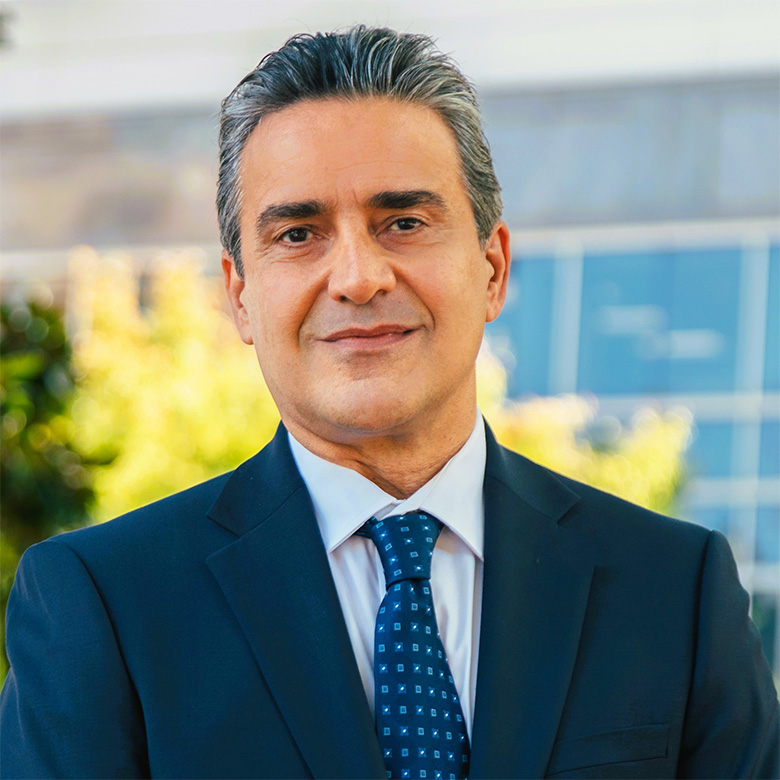 Dr. Azim Eskandarian has been the Alice T. and William H. Goodwin Jr. Dean of the College of Engineering at Virginia Commonwealth University since August 2023. He leads the college through transformative changes in interdisciplinary engineering without boundaries, focusing on selected thematic areas of excellence, experiential learning, and creative endeavors to meet industry needs, address current global challenges, and implement the principles of Engineering for Humanity, the Colleges new motto. Previously, he was a professor and head of the Mechanical Engineering Department at Virginia Tech in August 2015, where he was also honored as the Nicholas and Rebecca Des Champs Endowed Chair in April 2018. He led one of the nation’s largest (seventh-largest BS degree-granting, according to ASEE) and highly ranked ME departments. He also had a courtesy appointment as an Electrical and Computer Engineering professor. He established the Autonomous Systems and Intelligent Machines laboratory at Virginia Tech and conducted pioneering research in autonomous vehicles, human/driver cognition, advanced driver assistance systems, and robotics. Before joining Virginia Tech, He was a Professor of Engineering and Applied Science at the George Washington University (GWU) and the Founding Director of the Center for Intelligent Systems Research from 1996 to 2015, the Director of the Transportation Safety and Security University Area of Excellence, from 2002 to 2015, and the Co-Founder of the National Crash Analysis Center in 1992 and its Director from 1998 to 2002 and 2013 to 2015. From 1989 to 1992, he was an Assistant Professor at Pennsylvania State University, York, PA, and an Engineer/Project Manager in the industry from 1983 to 1989. As an academic leader, Dr. Eskandarian has developed strategic directions with the faculty’s consensus, started several new initiatives to enhance scholarship, student experiential learning, and diversity, and streamlined several departmental procedures with new policies. He has significantly contributed to developing new academic curricula, laboratories, and research centers. He substantially raised the department’s sponsored and transdisciplinary research, major gifts and philanthropy, diversity, and communications and outreach while increasing the faculty size and international collaborations and partnerships. He is a well-known visionary academic leader among his peers, with a strong collaborative spirit, consensus-building, and progressive ideas. He believes in leading and serving by example and puts people first as the foundation of successful organizational achievements. Dr. Eskandarian has 39 years of academic and engineering experience in dynamics and control, intelligent systems, and applied mechanics, with applications in intelligent vehicles, vehicle dynamics and control, automotive safety, neuro-engineering, and robotics. He received SAE’s Vincent Bendix Automotive Electronics Engineering Award in 2021, IEEE ITS Society’s Outstanding Researcher Award in 2017, and the GWU’s School of Engineering Outstanding Researcher Award in 2013. He is the Editor-in-Chief of the IEEE Transactions on ITS, raising it to become this field’s highest impact factor journal. He has also served as an editor, reviewer, panelist, and invited committee member for five journals, including the ASME Journal of Dynamic Systems, Measurements, and Controls, several conferences, and government agencies. His personal research portfolio includes over $28.8 million of sponsorship from the government, industry, and foundations. He has over 360 published works and abstracts/talks (240 refereed publications), including numerous invited talks. His “Handbook of Intelligent Vehicles” (published by Springer, 2012) has been widely used (over 803,000 accesses as of July 2024) and, due to popular demand, was translated into Chinese in 2014. Two of his articles in the IEEE Transactions on ITS were among the highest-cited publications from 2000-2009. Three of his co-authored articles with his students won best paper awards (among the top three.) His scholarship and research have attracted numerous media mentions and interviews. He is a Fellow of ASME and IEEE, a member of SAE professional societies, and Tau Beta PI and PI Tau Sigma engineering honor societies. He was the VP of Administration (2016-2018) and served three terms on the IEEE Intelligent Transportation Systems Society’s Board of Governors (currently 2022-24.) He also served on ASME’s department chair’s executive committee for one term. He was the president of GWU’s Sigma Xi scientific research society chapter. He received his BS, MS, and DSC degrees in Mechanical engineering from GWU, Virginia Tech, and GWU.
Dr. Azim Eskandarian has been the Alice T. and William H. Goodwin Jr. Dean of the College of Engineering at Virginia Commonwealth University since August 2023. He leads the college through transformative changes in interdisciplinary engineering without boundaries, focusing on selected thematic areas of excellence, experiential learning, and creative endeavors to meet industry needs, address current global challenges, and implement the principles of Engineering for Humanity, the Colleges new motto. Previously, he was a professor and head of the Mechanical Engineering Department at Virginia Tech in August 2015, where he was also honored as the Nicholas and Rebecca Des Champs Endowed Chair in April 2018. He led one of the nation’s largest (seventh-largest BS degree-granting, according to ASEE) and highly ranked ME departments. He also had a courtesy appointment as an Electrical and Computer Engineering professor. He established the Autonomous Systems and Intelligent Machines laboratory at Virginia Tech and conducted pioneering research in autonomous vehicles, human/driver cognition, advanced driver assistance systems, and robotics. Before joining Virginia Tech, He was a Professor of Engineering and Applied Science at the George Washington University (GWU) and the Founding Director of the Center for Intelligent Systems Research from 1996 to 2015, the Director of the Transportation Safety and Security University Area of Excellence, from 2002 to 2015, and the Co-Founder of the National Crash Analysis Center in 1992 and its Director from 1998 to 2002 and 2013 to 2015. From 1989 to 1992, he was an Assistant Professor at Pennsylvania State University, York, PA, and an Engineer/Project Manager in the industry from 1983 to 1989. As an academic leader, Dr. Eskandarian has developed strategic directions with the faculty’s consensus, started several new initiatives to enhance scholarship, student experiential learning, and diversity, and streamlined several departmental procedures with new policies. He has significantly contributed to developing new academic curricula, laboratories, and research centers. He substantially raised the department’s sponsored and transdisciplinary research, major gifts and philanthropy, diversity, and communications and outreach while increasing the faculty size and international collaborations and partnerships. He is a well-known visionary academic leader among his peers, with a strong collaborative spirit, consensus-building, and progressive ideas. He believes in leading and serving by example and puts people first as the foundation of successful organizational achievements. Dr. Eskandarian has 39 years of academic and engineering experience in dynamics and control, intelligent systems, and applied mechanics, with applications in intelligent vehicles, vehicle dynamics and control, automotive safety, neuro-engineering, and robotics. He received SAE’s Vincent Bendix Automotive Electronics Engineering Award in 2021, IEEE ITS Society’s Outstanding Researcher Award in 2017, and the GWU’s School of Engineering Outstanding Researcher Award in 2013. He is the Editor-in-Chief of the IEEE Transactions on ITS, raising it to become this field’s highest impact factor journal. He has also served as an editor, reviewer, panelist, and invited committee member for five journals, including the ASME Journal of Dynamic Systems, Measurements, and Controls, several conferences, and government agencies. His personal research portfolio includes over $28.8 million of sponsorship from the government, industry, and foundations. He has over 360 published works and abstracts/talks (240 refereed publications), including numerous invited talks. His “Handbook of Intelligent Vehicles” (published by Springer, 2012) has been widely used (over 803,000 accesses as of July 2024) and, due to popular demand, was translated into Chinese in 2014. Two of his articles in the IEEE Transactions on ITS were among the highest-cited publications from 2000-2009. Three of his co-authored articles with his students won best paper awards (among the top three.) His scholarship and research have attracted numerous media mentions and interviews. He is a Fellow of ASME and IEEE, a member of SAE professional societies, and Tau Beta PI and PI Tau Sigma engineering honor societies. He was the VP of Administration (2016-2018) and served three terms on the IEEE Intelligent Transportation Systems Society’s Board of Governors (currently 2022-24.) He also served on ASME’s department chair’s executive committee for one term. He was the president of GWU’s Sigma Xi scientific research society chapter. He received his BS, MS, and DSC degrees in Mechanical engineering from GWU, Virginia Tech, and GWU.
Prashant V. Kamat
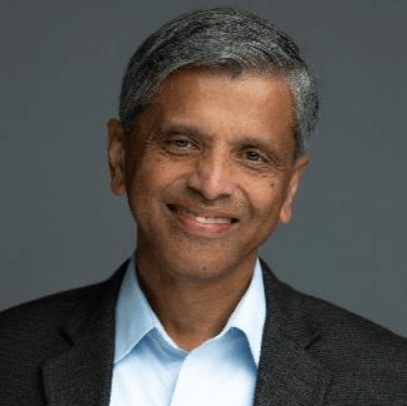 Prashant V. Kamat is a Rev. John A. Zahm, C.S.C., Professor of Science in the Department of Chemistry and Biochemistry and Radiation Laboratory at the University of Notre Dame. He is also a Concurrent Professor in the Department of Chemical and Biomolecular Engineering. Professor Kamat has for more than three decades worked to build bridges between physical chemistry and material science to develop advanced nanomaterials that promise cleaner and more efficient light energy conversion. He has published more than 500 scientific papers that have been well recognized by the scientific community. He is a Fellow of the American Chemical Society, Electrochemical Society and Materials Research Society. Thomson-Reuters has featured him as one of the most cited researchers each year since 2014 (2014 -2023). He is currently serving as the Editor-in-Chief of ACS Energy Letters.
Prashant V. Kamat is a Rev. John A. Zahm, C.S.C., Professor of Science in the Department of Chemistry and Biochemistry and Radiation Laboratory at the University of Notre Dame. He is also a Concurrent Professor in the Department of Chemical and Biomolecular Engineering. Professor Kamat has for more than three decades worked to build bridges between physical chemistry and material science to develop advanced nanomaterials that promise cleaner and more efficient light energy conversion. He has published more than 500 scientific papers that have been well recognized by the scientific community. He is a Fellow of the American Chemical Society, Electrochemical Society and Materials Research Society. Thomson-Reuters has featured him as one of the most cited researchers each year since 2014 (2014 -2023). He is currently serving as the Editor-in-Chief of ACS Energy Letters.
Ram B. Gupta
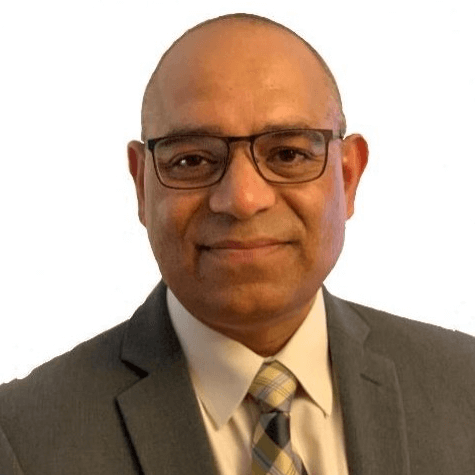 Professor Ram B. Gupta is the associate dean for research in the College of Engineering at the Virginia Commonwealth University. Widely regarded as one of the nation’s leading researchers on sustainable energy, materials, and technologies, Gupta is a frequent keynote speaker and writer on the new developments and innovations. Previously, Gupta served the U.S. National Science Foundation as director of the Energy for Sustainability program. He is ranked among the top 2% most cited researchers in his field. Gupta is a Fellow of the American Institute of Chemical Engineers and a Fellow of the Alabama Academy of Science. He received B.E. from Indian Institute of Technology (Roorkee), M.S. from University of Calgary, and Ph.D. from the University of Texas at Austin, all in chemical engineering.
Professor Ram B. Gupta is the associate dean for research in the College of Engineering at the Virginia Commonwealth University. Widely regarded as one of the nation’s leading researchers on sustainable energy, materials, and technologies, Gupta is a frequent keynote speaker and writer on the new developments and innovations. Previously, Gupta served the U.S. National Science Foundation as director of the Energy for Sustainability program. He is ranked among the top 2% most cited researchers in his field. Gupta is a Fellow of the American Institute of Chemical Engineers and a Fellow of the Alabama Academy of Science. He received B.E. from Indian Institute of Technology (Roorkee), M.S. from University of Calgary, and Ph.D. from the University of Texas at Austin, all in chemical engineering.
Indika Arachchige
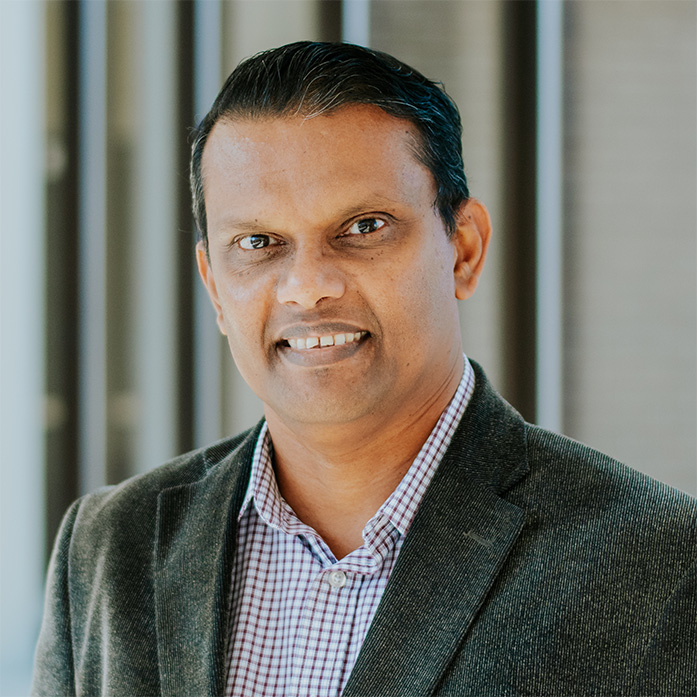 Dr. Indika Arachchige is a Professor of Chemistry at Virginia Commonality University (VCU). He obtained his undergraduate degree in chemistry (2001) from University of Kelaniya, Sri Lanka. Dr. Arachchige received his PhD degree in Inorganic Materials Chemistry from Wayne State University (2007) under the supervision of Prof. Stephine Brock. After serving as a Postdoctoral Fellow at Northwestern University (2007-2009) and a Postdoctoral Research Associate at Los Alamos National Laboratory (2009-2011), he began his independent research career as an Assistant Professor at VCU. He was promoted to Associate Professor in 2017 and to Full Professor in 2024. Dr. Arachchige published 41 peer-reviewed journal articles, a book chapter, and three patents. His group has been extensively involved with the development of innovative wet chemical routes for binary and ternary metal and semiconductor nanostructures with unique and tunable physical properties, including in-depth physical characterization and systematic investigation of photocatalytic and electrocatalytic activity. His research program has been currently funded by NSF–DMR, NSF–Chemistry, and two internal awards from VCU-OVPRI.
Dr. Indika Arachchige is a Professor of Chemistry at Virginia Commonality University (VCU). He obtained his undergraduate degree in chemistry (2001) from University of Kelaniya, Sri Lanka. Dr. Arachchige received his PhD degree in Inorganic Materials Chemistry from Wayne State University (2007) under the supervision of Prof. Stephine Brock. After serving as a Postdoctoral Fellow at Northwestern University (2007-2009) and a Postdoctoral Research Associate at Los Alamos National Laboratory (2009-2011), he began his independent research career as an Assistant Professor at VCU. He was promoted to Associate Professor in 2017 and to Full Professor in 2024. Dr. Arachchige published 41 peer-reviewed journal articles, a book chapter, and three patents. His group has been extensively involved with the development of innovative wet chemical routes for binary and ternary metal and semiconductor nanostructures with unique and tunable physical properties, including in-depth physical characterization and systematic investigation of photocatalytic and electrocatalytic activity. His research program has been currently funded by NSF–DMR, NSF–Chemistry, and two internal awards from VCU-OVPRI.
3:30 - 4:00 p.m.
Coffee Break
4:00 - 5:30 p.m.
Session III: Panel - Role of Federal Agencies
Moderator: Srirama Rao, Vice President of Research and Innovation, Virginia Commonwealth University
Panelists
- Gail McLean, Director of the Chemical Science, Geosciences and Bioscience Division, Office of Basic Energy Sciences, Department of Energy
- Nora Savage, Program Director, National Science Foundation
- Andrea Leeson, Deputy Director & Environmental Restoration Program Manager, Department of Defense
- Bob Swap, Associate Division Director for Mission Planning in the Earth Sciences, NASA Goddard Space Flight Center
Srirama Rao
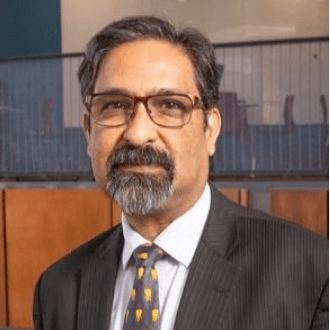 Srirama Rao earned his Ph.D. in allergy and immunology in 1989 from the Indian Institute of Science in Bangalore, after which he conducted postdoctoral studies at Pharmacia-Experimental Medicine in La Jolla, California. Subsequently he worked at the La Jolla Institute for Molecular Medicine and Professor and Vice President for Research until 2007. He then served as a professor and Associate dean for research at the University of Minnesota from 2007 to 2018. Dr. Rao’s research has focused on the pathogenesis of allergic inflammation and he has published over 90 peer reviewed manuscripts, reviews and book chapters. Prior to his current role at VCU, over the course of his previous 30-year research career, Dr. Rao was continuously funded by the NIH, multiple federal and state agencies, foundations and corporations, securing nearly $20 million in grant support. In his current role at VCU, Dr. Rao is responsible for the overall strategy, compliance, growth and expansion of the research enterprise. As the institutional official, he leads the Office of the Vice President for Research and Innovation (OVPRI) in its efforts to ensure the optimal operational efficiency of the divisions of: Finance and Operations, Strategy and Regulatory Affairs, Research Administration, Clinical Research, Research Development, Innovation, Research Computing, Strategic Communications, and Animal Resources. Dr. Rao oversees VCU’s research institutes and centers, core laboratories and institutional committees including the Institutional Animal Care and Use Committee and the Institutional Review Board. In collaboration with researchers across the arts, humanities, social sciences, health and STEM disciplines, he is committed to fostering collaborative and cross-cutting basic, applied, clinical and translational research at VCU. Under Dr. Rao’s leadership VCU’s sponsored funding grew by nearly 72% from $271M in FY2018 to over $464M in FY2023. An additional focus for Dr. Rao is the translation of VCU discoveries and innovations from the bench into the community, via public and private partnerships, as well as contributions to the region’s overall growth and economic development. Dr. Rao holds many U.S. and international patents and is an elected senior member of the National Academy of Inventors. He also serves as an advisor, board member and trustee of various local and national organizations.
Srirama Rao earned his Ph.D. in allergy and immunology in 1989 from the Indian Institute of Science in Bangalore, after which he conducted postdoctoral studies at Pharmacia-Experimental Medicine in La Jolla, California. Subsequently he worked at the La Jolla Institute for Molecular Medicine and Professor and Vice President for Research until 2007. He then served as a professor and Associate dean for research at the University of Minnesota from 2007 to 2018. Dr. Rao’s research has focused on the pathogenesis of allergic inflammation and he has published over 90 peer reviewed manuscripts, reviews and book chapters. Prior to his current role at VCU, over the course of his previous 30-year research career, Dr. Rao was continuously funded by the NIH, multiple federal and state agencies, foundations and corporations, securing nearly $20 million in grant support. In his current role at VCU, Dr. Rao is responsible for the overall strategy, compliance, growth and expansion of the research enterprise. As the institutional official, he leads the Office of the Vice President for Research and Innovation (OVPRI) in its efforts to ensure the optimal operational efficiency of the divisions of: Finance and Operations, Strategy and Regulatory Affairs, Research Administration, Clinical Research, Research Development, Innovation, Research Computing, Strategic Communications, and Animal Resources. Dr. Rao oversees VCU’s research institutes and centers, core laboratories and institutional committees including the Institutional Animal Care and Use Committee and the Institutional Review Board. In collaboration with researchers across the arts, humanities, social sciences, health and STEM disciplines, he is committed to fostering collaborative and cross-cutting basic, applied, clinical and translational research at VCU. Under Dr. Rao’s leadership VCU’s sponsored funding grew by nearly 72% from $271M in FY2018 to over $464M in FY2023. An additional focus for Dr. Rao is the translation of VCU discoveries and innovations from the bench into the community, via public and private partnerships, as well as contributions to the region’s overall growth and economic development. Dr. Rao holds many U.S. and international patents and is an elected senior member of the National Academy of Inventors. He also serves as an advisor, board member and trustee of various local and national organizations.
Gail McLean
.png) Gail McLean is the Director of the Chemical Sciences, Geosciences and Biosciences Division in DOE’s Office of Basic Energy Sciences (BES). Her professional career has been primarily dedicated to federal scientific program management and leadership. Her Ph.D. is in molecular genetics and her prior research includes studies of plant cytoskeletal proteins, Agrobacterium signaling mechanisms, and cell-to-cell transport. Prior to joining DOE in 2008, she was a National Program Leader in the USDA’s Cooperative State Research, Education, and Extension Service (now the National Institute of Food and Agriculture) where she led basic research competitive programs in plant science; she also served as the Acting Integrated Programs Director. Dr. McLean is a Fellow of the American Association for the Advancement of Science (AAAS).
Gail McLean is the Director of the Chemical Sciences, Geosciences and Biosciences Division in DOE’s Office of Basic Energy Sciences (BES). Her professional career has been primarily dedicated to federal scientific program management and leadership. Her Ph.D. is in molecular genetics and her prior research includes studies of plant cytoskeletal proteins, Agrobacterium signaling mechanisms, and cell-to-cell transport. Prior to joining DOE in 2008, she was a National Program Leader in the USDA’s Cooperative State Research, Education, and Extension Service (now the National Institute of Food and Agriculture) where she led basic research competitive programs in plant science; she also served as the Acting Integrated Programs Director. Dr. McLean is a Fellow of the American Association for the Advancement of Science (AAAS).
Nora Savage
.png) Nora obtained her bachelor’s degree in chemical engineering from Prairie View A&M University. She received two master’s degrees (in Environmental Engineering and Environmental Science) from the University of Wisconsin-Madison and a doctoral degree in Environmental Science from the same institution in 2000. Nora currently serves as Program Director for the Nanoscale Interactions Program housed within the Chemical, Bioengineering, Environmental and Transport Systems (CBET) Division of the Engineering Directorate at the National Science Foundation. Her responsibilities include the management and coordination of technical scientific review panels and management of a grant portfolio of research projects. Nora is one of the Foundation’s representatives on the Nanoscale Science, Engineering and ]Technology (NSET) subcommittee of the National Science and Technology Council that implements and coordinates activities and strategies of the National Nanotechnology Initiative (NNI). Nora has worked for the U.S. federal government for over twenty years. In this capacity she has served the environmental nanotechnology and the general environmental engineering research communities through her contributions to strategic research direction.
Nora obtained her bachelor’s degree in chemical engineering from Prairie View A&M University. She received two master’s degrees (in Environmental Engineering and Environmental Science) from the University of Wisconsin-Madison and a doctoral degree in Environmental Science from the same institution in 2000. Nora currently serves as Program Director for the Nanoscale Interactions Program housed within the Chemical, Bioengineering, Environmental and Transport Systems (CBET) Division of the Engineering Directorate at the National Science Foundation. Her responsibilities include the management and coordination of technical scientific review panels and management of a grant portfolio of research projects. Nora is one of the Foundation’s representatives on the Nanoscale Science, Engineering and ]Technology (NSET) subcommittee of the National Science and Technology Council that implements and coordinates activities and strategies of the National Nanotechnology Initiative (NNI). Nora has worked for the U.S. federal government for over twenty years. In this capacity she has served the environmental nanotechnology and the general environmental engineering research communities through her contributions to strategic research direction.
Andrea Leeson
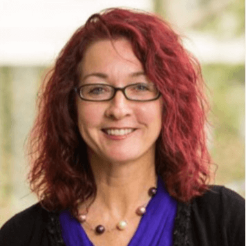 Dr. Andrea Leeson has been the Program Manager for Environmental Restoration at SERDP and ESTCP since 2001 and the Deputy Director since 2015. Prior to her time at SERDP and ESTCP, she was a Research Scientist at Battelle Memorial Institute in Columbus, OH. She has specialized in developing in situ treatment technologies for contaminated groundwater. She holds a Ph.D. in Environmental Engineering from the Johns Hopkins University.
Dr. Andrea Leeson has been the Program Manager for Environmental Restoration at SERDP and ESTCP since 2001 and the Deputy Director since 2015. Prior to her time at SERDP and ESTCP, she was a Research Scientist at Battelle Memorial Institute in Columbus, OH. She has specialized in developing in situ treatment technologies for contaminated groundwater. She holds a Ph.D. in Environmental Engineering from the Johns Hopkins University.
Bob Swap
Dr. Robert (Bob) Swap is currently the Associate Division Director for Mission Planning in the Earth Sciences at NASA’s Goddard Space Flight Center. Prior to assuming this position he served as the Principal Investigator of the NASA Pandora Project in Goddard’s Atmospheric Chemistry and Dynamics Laboratory. While serving as a Research Professor of Environmental Science at the University of Virginia, he has served as: Principal Investigator of the Southern African Regional Science Initiative (SAFARI 2000); Director of the Eastern Virginia Networks and Associations regional knowledge network (ESAVANA); Fulbright Senior Specialist in Mozambique; Subject Expert for the 2008 U.S. State Department’s GDEST-Africa delegation on Geospatial Science and Technology for Sustainable Development; U.S. Embassy Science Fellow in Windhoek, Namibia; and Earth Science Directorate Program Officer in the Radiation Sciences Program in the Earth Sciences Division Research and Analysis program at NASA’s HQ. Dr. Swap received his Ph.D. in Environmental Sciences from the University of Virginia while working on topics related to the long range transport and impact of African aerosols. He is the 2012 Carnegie Foundation Virginia Professor of the Year for Excellence in Undergraduate Teaching and Mentoring and holds the title of Extraordinary Professor in Environmental Sciences and Management at North West University-Potchefstroom, South Africa. He was also inducted into the University of Virginia Academy of Teaching in 2014. In addition to his research interests, Dr. Robert Swap is a practitioner of Science Diplomacy and Servant Leadership who has held many academic and governmental leadership positions related to collaborative research and education in emerging regions, most notably sub-equatorial Africa and Brazil. He is often called upon to share his expertise on topics including international partnerships, engaged pedagogies, servant leadership, and Science Diplomacy for numerous universities and institutions such as AAAS, TWAS, and the UN.
Friday, October 18
9:00 - 10:30 a.m.
Session IV: Climate Resilience
Chair: Donald Young, Professor of Biology, Virginia Commonwealth University
Speakers
- Marccus Hendricks, Associate Professor; Director at SIRJ Lab; Affiliated Research Faculty, Clark School of Engineering's Center for Disaster Resilience, NCSG & EFC., University of Maryland - “Murky Waters, Infrastructure, and Environmental Risks: Stormwater Planning and Participation Towards Climate Justice”
- Julie Zinnert, Associate Professor of Biology, Virginia Commonwealth University - “Climate change, society, and sustainable coastal systems”
- Robert Weiss, Professor, Department of Geosciences, Virginia Tech - “Understanding the Future Impact of Coastal Hazards through Computational Modeling”
“Murky Waters, Infrastructure, and Environmental Risks: Stormwater Planning and Participation Towards Climate Justice”
Marccus Hendricks
Past studies in public health have demonstrated an association between disease and poor sanitation, such as waterborne illnesses and exposure to sewage-laden waters. Modern stormwater and sanitary systems are some of history’s most lifesaving infrastructures. However, failure to maintain and rehabilitate these systems over the years, as well as changing environmental conditions induced by climate, have created some pre-modern circumstances in cities across the world. These risks may be particularly evident in marginalized urban neighborhoods that often have poorer stormwater and sanitation infrastructure and public works services. Currently, cities are facing frequent overflows of their sanitary sewers due to old and failing assets and more frequent and intense rainfall events further overwhelming the system.
Dr. Marccus Hendricks will discuss the equity and environmental justice issues related to stormwater and sewer infrastructure planning that result in vulnerable systems and households impacted by flooding and exposed to untreated wastewater. Specifically, he will examine conceptual frameworks and contextualize what it means for physical systems to operate in a social world. He will take a deeper dive into an ongoing case study where he and his team are using a mixed-method and community-driven approach to evaluate exposures from sanitary sewer overflows (SSO) and basement backups in Baltimore City. Lastly, Dr. Hendricks will highlight plans to leverage this work to shed light on these murky waters towards action and policy that integrates justice and participation into the remediation and future mitigation of these environmental risks.
Donald Young
.png) Don Young joined the Department of Biology in 1984. He is a broadly trained plant ecologist with an emphasis on physiological ecology. His research interests have focused on barrier islands vegetation and associated responses to climate change, especially sea-level rise with research funding from NSF, DOE, DOD, US Fish and Wildlife Service, National Geographic and several state agencies. Over the years, Don has taught a variety of undergraduate and graduate courses and has trained over thirty-five MS and PhD students. He has served on more than sixty department, College and University committees. Within Biology, he directed the graduate program for eight years. This was followed by six years as associate chair. His next administrative experience was serving as department chair for seven years. In August of 2017, Don transitioned from department chair to the College of Humanities and Sciences where he was the Senior Associate Dean for Finance and Administration. In April of 2019, he was appointed as Interim Dean for CHS for the 2019-20 academic year. Currently, he is a Professor in the Department of Biology where he enjoys teaching undergraduates and mentoring graduate students.
Don Young joined the Department of Biology in 1984. He is a broadly trained plant ecologist with an emphasis on physiological ecology. His research interests have focused on barrier islands vegetation and associated responses to climate change, especially sea-level rise with research funding from NSF, DOE, DOD, US Fish and Wildlife Service, National Geographic and several state agencies. Over the years, Don has taught a variety of undergraduate and graduate courses and has trained over thirty-five MS and PhD students. He has served on more than sixty department, College and University committees. Within Biology, he directed the graduate program for eight years. This was followed by six years as associate chair. His next administrative experience was serving as department chair for seven years. In August of 2017, Don transitioned from department chair to the College of Humanities and Sciences where he was the Senior Associate Dean for Finance and Administration. In April of 2019, he was appointed as Interim Dean for CHS for the 2019-20 academic year. Currently, he is a Professor in the Department of Biology where he enjoys teaching undergraduates and mentoring graduate students.
Marccus Hendricks
 Marccus D. Hendricks is an Associate Professor of Urban Studies and Planning and is the Director of the Stormwater Infrastructure Resilience and Justice (SIRJ) Lab at the University of Maryland (UMD). His role extends into Civil and Environmental Engineering and the Maryland Institute for Applied Environmental Health. Dr. Hendricks recently served in the Biden-Harris Administration as a Senior Advisor in the inaugural Office of Environmental Justice at the White House Council on Environmental Quality (CEQ) in the Executive Office of the President. To date, he has primarily worked to understand how social processes and development patterns create hazardous human-built environments, vulnerable infrastructure, and the risks and promising adaptation strategies related to, for example, urban stormwater management and flooding, industrial releases and explosions, and sanitary sewer overflows.
Marccus D. Hendricks is an Associate Professor of Urban Studies and Planning and is the Director of the Stormwater Infrastructure Resilience and Justice (SIRJ) Lab at the University of Maryland (UMD). His role extends into Civil and Environmental Engineering and the Maryland Institute for Applied Environmental Health. Dr. Hendricks recently served in the Biden-Harris Administration as a Senior Advisor in the inaugural Office of Environmental Justice at the White House Council on Environmental Quality (CEQ) in the Executive Office of the President. To date, he has primarily worked to understand how social processes and development patterns create hazardous human-built environments, vulnerable infrastructure, and the risks and promising adaptation strategies related to, for example, urban stormwater management and flooding, industrial releases and explosions, and sanitary sewer overflows.
Julie Zinnert
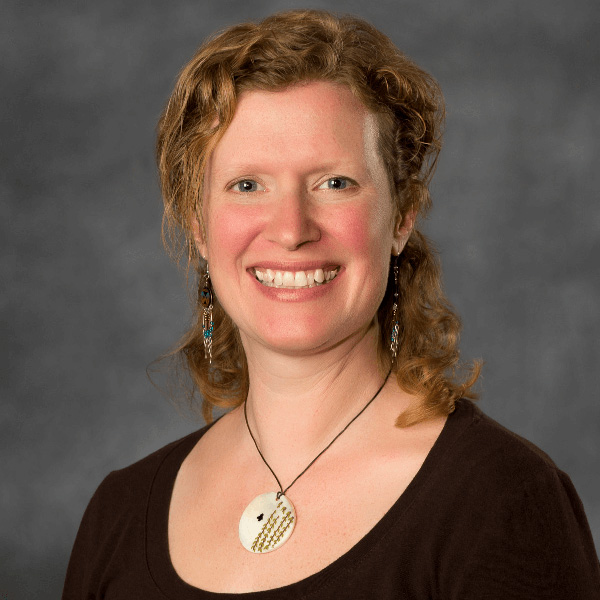 Dr. Julie C. Zinnert is an Associate Professor in the Department of Biology at Virginia Commonwealth University. Her research focuses on coastal plant ecology, specifically within the context of global change, to understand long-term changes in plant communities, biotic interactions, and interactions with the physical environment across spatial and temporal scales. As a co-PI at the Virginia Coast Reserve, a National Science Foundation funded Long-Term Ecological Research site, she works with an interdisciplinary group of scientists to develop a predictive understanding of how long-term change and short-term disturbance control the dynamic nature of coastal barrier landscapes. Coastal communities are unique and highly dynamic due to atmospheric (i.e., temperature warming) and oceanic drivers (i.e., sea-level rise) of climate change. By quantifying interactions between biotic and geomorphic processes that influence landform development, her research contributes to understanding coastal resilience and predicting responses to changing climate for various coastal systems (i.e., dunes, coastal grassland, entire barrier islands). Dr. Zinnert teaches courses in Coastal Ecology, Quantitative Ecology, and Plants, People, and Culture.
Dr. Julie C. Zinnert is an Associate Professor in the Department of Biology at Virginia Commonwealth University. Her research focuses on coastal plant ecology, specifically within the context of global change, to understand long-term changes in plant communities, biotic interactions, and interactions with the physical environment across spatial and temporal scales. As a co-PI at the Virginia Coast Reserve, a National Science Foundation funded Long-Term Ecological Research site, she works with an interdisciplinary group of scientists to develop a predictive understanding of how long-term change and short-term disturbance control the dynamic nature of coastal barrier landscapes. Coastal communities are unique and highly dynamic due to atmospheric (i.e., temperature warming) and oceanic drivers (i.e., sea-level rise) of climate change. By quantifying interactions between biotic and geomorphic processes that influence landform development, her research contributes to understanding coastal resilience and predicting responses to changing climate for various coastal systems (i.e., dunes, coastal grassland, entire barrier islands). Dr. Zinnert teaches courses in Coastal Ecology, Quantitative Ecology, and Plants, People, and Culture.
Robert Weiss
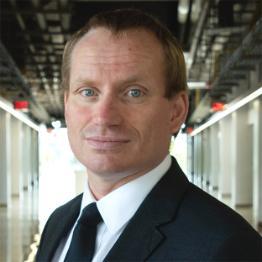
Robert Weiss has served as the Director of the Academy of Integrated Science in Virginia Tech’s College of Science since early 2022 and is a Professor of Natural Hazards in the Department of Geoscience. He is an international expert with over 20 years of experience in studying the impact of coastal hazards today, in the geologic past, and in the future. For the geologic past, his work attempts to translate the geologic record into insights that improve the understanding of coastal hazards today through numerical modeling. To predict future hazard impacts, he uses high-performance computing to better characterize the effects of climate change and their uncertainty on how coastal hazards, such as tsunamis and storms, will affect future coastal areas. Recently, his work also includes a better theoretical understanding of how disasters develop from hazards in a given system.
Robert Weiss is an active member of the American Geophysical Union and the Geological Society of America, contributing to these professional societies through various leadership roles. He is also an alumnus of the 2023-24 American Council on Education fellowship program.
10:30 - 11:00 a.m.
Coffee Break
11:00 a.m. - 12:30 p.m.
Session V: Panel – Education
Moderator: William Muth, Professor Emeritus, Virginia Commonwealth University
Panelists
- Ghazala Hashmi, Virginia Senator
- Beth Kreydatus, Professor, Virginia Commonwealth University
- Josh Bearman, Programs Director for Blue Sky Fund
- Sheri Shannon, Co-Founder of Southside ReLeaf
William Muth
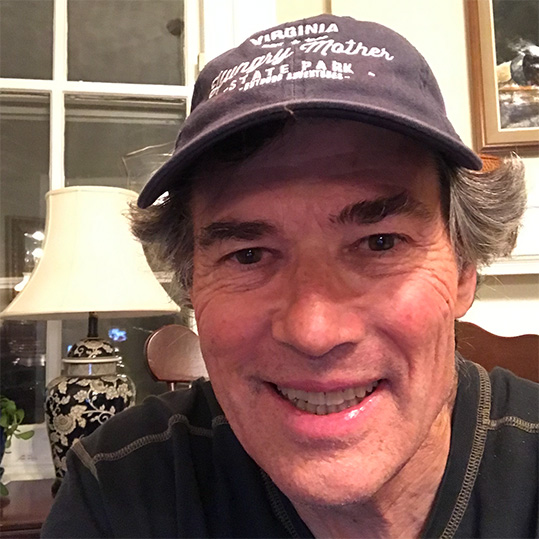 William Muth, is Professor Emeritus, VCU School of Education, Co-Founder of Third Act Virginia, and member of VCU’s Institute for Sustainable Energy and the Environment.
William Muth, is Professor Emeritus, VCU School of Education, Co-Founder of Third Act Virginia, and member of VCU’s Institute for Sustainable Energy and the Environment.
Ghazala Hashmi
.jpg) Ghazala Hashmi serves in the Virginia General Assembly and represents the 15th Senatorial District which includes parts of Richmond City and Chesterfield County. She first ran for office in 2019, defeating a Republican incumbent in a long-held red seat. Her successful campaign secured a one-seat Democratic majority in the Virginia Senate and also secured a Democratic trifecta for the next two years. After winning her second term in office in November 2023, Senator Hashmi now serves as Chair of the Senate Education and Health Committee. She also sits on the following Senate Committees: Finance and Appropriations; Agriculture, Conservation and Natural Resources; Transportation; and Rules. Senator Hashmi has also been appointed, for the past four years, to numerous boards and commissions; additionally, she was elected in 2023 to serve as Vice Chair for the Education Committee of the Council of State Governments - Southern Region. Prior to her first election in November 2019, Senator Hashmi had a long career in higher education in Virginia.
Ghazala Hashmi serves in the Virginia General Assembly and represents the 15th Senatorial District which includes parts of Richmond City and Chesterfield County. She first ran for office in 2019, defeating a Republican incumbent in a long-held red seat. Her successful campaign secured a one-seat Democratic majority in the Virginia Senate and also secured a Democratic trifecta for the next two years. After winning her second term in office in November 2023, Senator Hashmi now serves as Chair of the Senate Education and Health Committee. She also sits on the following Senate Committees: Finance and Appropriations; Agriculture, Conservation and Natural Resources; Transportation; and Rules. Senator Hashmi has also been appointed, for the past four years, to numerous boards and commissions; additionally, she was elected in 2023 to serve as Vice Chair for the Education Committee of the Council of State Governments - Southern Region. Prior to her first election in November 2019, Senator Hashmi had a long career in higher education in Virginia.
Beth Kreydatus
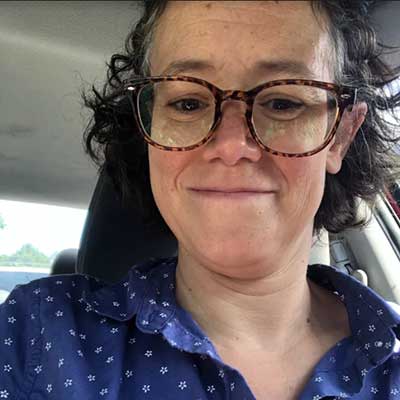 Beth Kreydatus is a Professor in the Department of Focused Inquiry and a faculty lead for Education and Outreach in the Institute for Sustainable Energy and Environment, at VCU. She has a Ph.D. in History from the College of William and Mary. She has been active in environmental justice advocacy for the past five years, and she has engaged her undergraduate general education students in service learning collaborations with a range of organizations, including Concerned Citizens of Charles City County, Sierra Club, Virginia Interfaith, and Richmond's Office of Sustainability.
Beth Kreydatus is a Professor in the Department of Focused Inquiry and a faculty lead for Education and Outreach in the Institute for Sustainable Energy and Environment, at VCU. She has a Ph.D. in History from the College of William and Mary. She has been active in environmental justice advocacy for the past five years, and she has engaged her undergraduate general education students in service learning collaborations with a range of organizations, including Concerned Citizens of Charles City County, Sierra Club, Virginia Interfaith, and Richmond's Office of Sustainability.
Josh Bearman
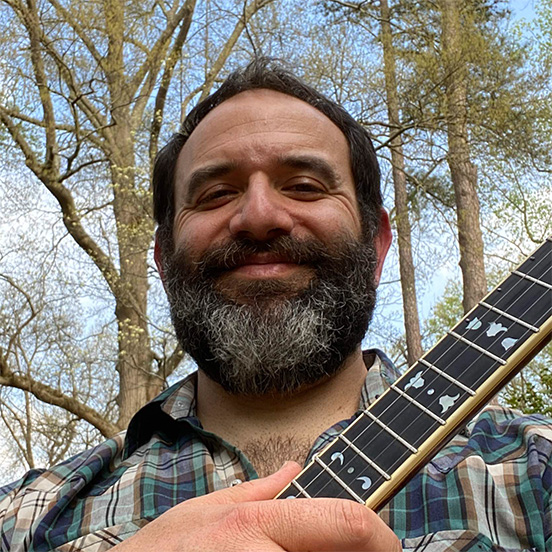 Josh has been involved in formal and non-formal science education for over two decades. Beginning in 2000 as a field educator with the Chesapeake Bay Foundation, moving into the world of formal education in 2012 (after a 6 year hiatus as a touring bluegrass musician), teaching middle school science for Richmond Public Schools. Josh moved to the VDOE as a Science Curriculum Specialist in 2018, returning to RPS in 2019 as the K-12 Science Curriculum and Instructional Specialist. Josh joined Blue Sky Fund as Programs Director in October 2022.
Josh has been involved in formal and non-formal science education for over two decades. Beginning in 2000 as a field educator with the Chesapeake Bay Foundation, moving into the world of formal education in 2012 (after a 6 year hiatus as a touring bluegrass musician), teaching middle school science for Richmond Public Schools. Josh moved to the VDOE as a Science Curriculum Specialist in 2018, returning to RPS in 2019 as the K-12 Science Curriculum and Instructional Specialist. Josh joined Blue Sky Fund as Programs Director in October 2022.
Josh holds a Bachelors in Geology from Brown University, a M.Sc from the VA Institute of Marine Science, and a M.Ed from VCU. Josh plays music on a regular basis, and lives and frolics near the river in Richmond with his partner who designs and builds custom upholstered furniture and a precocious daughter who is obsessed with spiders and ukuleles.
Sheri Shannon
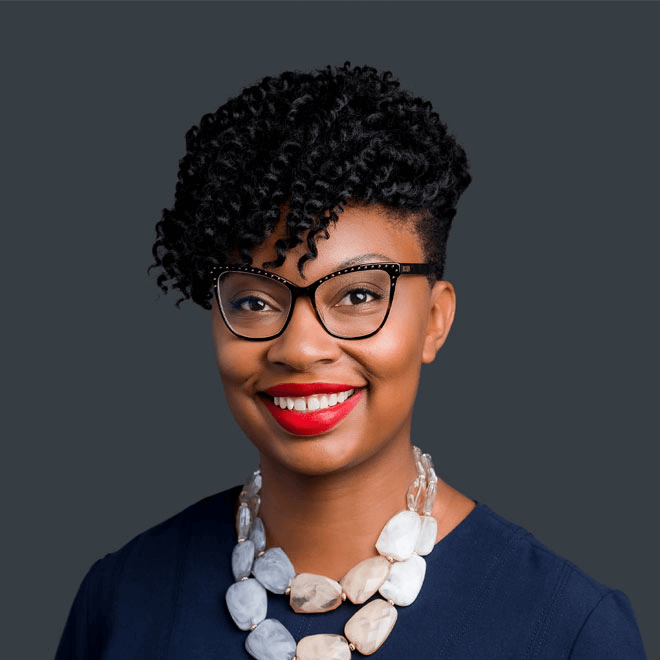 Sheri is an award-winning communications strategist and owner of Shannon Strategies, a communications firm specializing in policy, advocacy, and progressive politics. As the co-founder of Southside ReLeaf and host of WRIR’s Women and Politics, she advocates for environmental justice and provides a platform for women, femmes, and nonbinary individuals to talk about their work in the community.
Sheri is an award-winning communications strategist and owner of Shannon Strategies, a communications firm specializing in policy, advocacy, and progressive politics. As the co-founder of Southside ReLeaf and host of WRIR’s Women and Politics, she advocates for environmental justice and provides a platform for women, femmes, and nonbinary individuals to talk about their work in the community.
For more than 15 years, she has worked in the nonprofit and private sectors in the U.S. and Australia, delivering high-impact communications and campaigns to build power within our communities. Sheri holds an M.A. in Communications from Southern New Hampshire University and a B.S. in Earth Sciences from The Pennsylvania State University. She has also been featured as an “Eco Hero” by Glamour magazine.
12:30 - 2:00 p.m.
Lunch and Luncheon Speaker
Vince Maiden, PG Managing Director, State Energy Office, Virginia Department of Energy
2:00 - 3:20 p.m.
Session VI: Sustainability – Global Perspective
Chair: Patricia Cummins, Professor of French, Virginia Commonwealth University President, Africa Business and Entrepreneurship Research Society, Inc.
Speakers
- Valerie Thomas, Anderson-Interface Chair of Natural Systems and Professor, H. Milton School of Industrial and Systems Engineering, Georgia Tech Research Corporation - “Research Priorities for a US-Africa Center for Clean Energy Research”
-
Farhan Akhtar, Acting Branch Chief for climate change science and negotiations, Office of Global Change, U.S. Department of State - "Climate Science under the
Paris Agreement" - Radhika Barua, Assistant Professor, Dept. of Mechanical & Nuclear Engineering, Virginia Commonwealth University - "Global Supply Chain Resilience, Technology Trends, & New Opportunities for Rare-Earth-Free Permanent Magnets"
Valerie Thomas - “Research Priorities for a US-Africa Center for Clean Energy Research”
Farhan Akhtar - “Climate Science under the Paris Agreement”
Radhika Barua - “Global Supply Chain Resilience, Technology Trends, & New Opportunities for Rare-Earth-Free Permanent Magnets”
Permanent magnets (PMs) are crucial for a wide range of consumer and industrial electronics, and they are integral to advancing renewable energy technologies, such as wind turbines, hydroelectric generators, and electric vehicles. However, the current global dependency on these magnets is unsustainable. Ironically, the magnets that drive clean energy technologies require substantial quantities of critical rare earth elements, including neodymium (Nd), dysprosium (Dy), samarium (Sm), terbium (Tb), and praseodymium (Pr). These elements are associated with significant challenges, including complex supply chains, environmentally harmful extraction methods, and energy-intensive manufacturing processes. To achieve long-term environmental sustainability, it is imperative to develop rare-earth-free PMs fabricated from recyclable, earth-abundant elements through cost-effective processing methods with minimal carbon footprints.
In this presentation, I will explore how the Advanced Magnetic Materials Processing (AM2P) research group at VCU employs advanced materials processing techniques and a broad spectrum of cutting-edge experimental characterization methods to investigate the relationships between processability, material structure, and functional performance across multiple hierarchical length scales in rare-earth-free permanent magnets. These magnets represent a class of highly magnetized functional hard materials that maintain their magnetism over time due to the intrinsic magnetic field generated by their internal structures. The focus will be on research innovations centered on two specific families of rare-earth-free magnets: (1) Alnico alloys, which are phase-separated nanocomposites primarily composed of aluminum, nickel, iron, and cobalt, and (2) Tetrataenite, a chemically ordered L10-type FeNi phase naturally occurring in meteorites.
As environmental policies become more stringent and consumer demand for sustainable products grows, transitioning from a linear business model to a circular economy framework is essential. This presentation will also include a life cycle assessment study, quantifying the environmental benefits derived from the production of rare-earth-free PMs. Ultimately, this work aims to support innovative energy sector applications while enhancing U.S. energy security by reducing reliance on imports of critical raw materials and energy from foreign sources.
Patricia Cummins
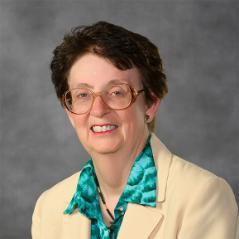
Dr. Patricia Cummins (VCU) is President of the Africa Business and Entrepreneurship Research Society. An expert in Business French and language for special purposes, she teaches interdisciplinary courses on French-speaking Africa, intercultural communication, and language and identity. Her work in Morocco includes Collaborative Online International Learning projects with Moroccan universities involving UN Sustainable Development Goals. The Executive Director of the Institute for Research in Solar and New Energies, who is part of the October 2024 ISEE symposium, has interacted personally with her students. Her grants and contracts have funded other VCU faculty and VCU students. As a member of the Richmond Sister Cities Commission 2012-17, and 2021-26, she chairs the Richmond-Ségou (Mali) relationship, and she has worked with several institutions in Mali, Morocco, and Côte d’Ivoire. She co-sponsored both the award-winning 2013 Women, War & Peace in Africa conference and the 2017 Africa Business Conference at VCU. Her forthcoming article in Routledge’s Handbook of Research on World Language Instruction focuses on Curriculum 2 Careers. She is committed to interdisciplinary collaboration in her research, and she looks forward to the transdisciplinary repositioning of world languages at VCU.
Valerie Thomas
.png) Valerie M. Thomas, a professor at Georgia Tech, is the Anderson-Interface Chair of Natural Systems in the H. Milton Stewart School of Industrial and Systems Engineering, with a joint appointment in the School of Public Policy. Her research is in environmental lifecycle analysis, energy systems, and sustainability. Recent work includes evaluation of the environmental impacts of biofuels, optimal siting of electric vehicle charging incorporating equity in low-income urban areas, reducing greenhouse gas emissions of freight transportation, methods to reduce the greenhouse gas emissions of cement, and opportunities to source critical materials from wastes. She recently chaired a study, Current Methods in Lifecycle Greenhouse Gas Emissions of Low-Carbon Transportation Fuels, for the US National Academies of Sciences, Engineering, and Medicine. She has served as a member of the US EPA Science Advisory Board and of the US Department of Agriculture and Department of Energy’s Biomass Research and Development Technical Advisory Committee. She received a BA in physics from Swarthmore College, and a PhD in high-energy physics from Cornell University and has worked at Carnegie Mellon University and at Princeton University.
Valerie M. Thomas, a professor at Georgia Tech, is the Anderson-Interface Chair of Natural Systems in the H. Milton Stewart School of Industrial and Systems Engineering, with a joint appointment in the School of Public Policy. Her research is in environmental lifecycle analysis, energy systems, and sustainability. Recent work includes evaluation of the environmental impacts of biofuels, optimal siting of electric vehicle charging incorporating equity in low-income urban areas, reducing greenhouse gas emissions of freight transportation, methods to reduce the greenhouse gas emissions of cement, and opportunities to source critical materials from wastes. She recently chaired a study, Current Methods in Lifecycle Greenhouse Gas Emissions of Low-Carbon Transportation Fuels, for the US National Academies of Sciences, Engineering, and Medicine. She has served as a member of the US EPA Science Advisory Board and of the US Department of Agriculture and Department of Energy’s Biomass Research and Development Technical Advisory Committee. She received a BA in physics from Swarthmore College, and a PhD in high-energy physics from Cornell University and has worked at Carnegie Mellon University and at Princeton University.
Farhan Akhtar
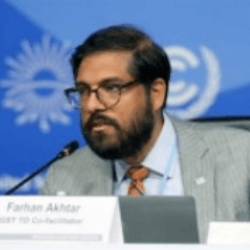 Dr. Farhan Akhtar is the acting branch chief for climate change science and
Dr. Farhan Akhtar is the acting branch chief for climate change science and
negotiations in the Office of Global Change at the U.S. Department of State. Dr
Akhtar has represented the United States in international negotiations at the UN
Framework Convention on Climate Change since 2014. He most recently served as
one of the co-facilitators of the technical dialogue of the first Global Stocktake
under the Paris Agreement. Previously, from 2017-2022, Dr. Akhtar served on the
Executive Committee for the Warsaw International Mechanism for loss and
damage associated with the adverse impacts of climate change. Since 2019, Dr.
Akhtar has served as the lead representative for the United States at the
Intergovernmental Panel on Climate Change. Dr. Akhtar is also the senior State
Department scientist on Sub-committee for Global Change Research, which
coordinates climate change research for the United States government, and he
was the coordinating lead author of the international chapter of the Fourth U.S.
National Climate Assessment.
From 2013-2015, Dr. Akhtar was an American Association for the Advancement of
Science (AAAS) Science Policy Fellowship at the Department of State. From 2010-
2012, Farhan was a postdoctoral fellow at the Environmental Protection Agency.
Radhika Barua
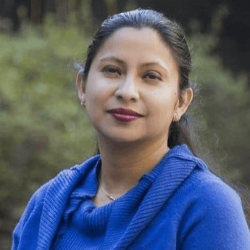 Radhika Barua is an Assistant Professor in the Department of
Radhika Barua is an Assistant Professor in the Department of
Mechanical and Nuclear Engineering at Virginia Commonwealth University
(VCU). She holds a Ph.D. and M.S. in Chemical Engineering with a focus on
Materials Science from Northeastern University and a B.E. in Chemical
Engineering from Visveswaraiah Technological University, India. Dr. Barua directs
the Advanced Magnetic Materials Processing (AM 2 P) Laboratory at VCU, where
her research centers on developing critical rare-earth-free functional magnetic
materials through low-carbon manufacturing processes for energy conversion,
distribution, and storage applications. Her educational mission is to advance
engineering pedagogy with a focus on environmental sustainability and inclusive
innovation, emphasizing the core principles of the circular economy: Reduce,
Reuse, and Recycle. Currently, she has over 45 peer-reviewed publications and three patents. In service to the scientific community, she serves as the Chair of the Richmond Chapter of the IEEE Magnetics Society and on the Technical Advisory Board of the Commonwealth Center for Advanced Manufacturing and the Richmond Institute of Technology and Science.
3:30 - 4:00 p.m.
Coffee Break/Posters
4:00 - 5:30 p.m.
Session VII: Environmental Impact – From Science to Policy
Chair: Damian Pitt, Associate Professor, Urban and Regional Studies and Planning, Virginia Commonwealth University
Speakers:
- Hani El-Kaderi, Professor of Chemistry, Virginia Commonwealth University - “Engineering Next-Generation Solutions: Programmable Porous Organic Polymers for Effective Toxic Gas Removal”
- Patty Oikawa, Assistant Professor Department of Earth & Environmental Sciences, California State University, East Bay - "Restoring Wetlands as a Nature-Based Climate Solution: A Deep Dive into Greenhouse Gas Measurements and Modeling"
- Bill Shobe, Research Professor for Public Policy, and Director Center for Economic and Policy Studies, University of Virginia VA - “The Challenge of Effective State-level Climate Policies: An Economist’s View”
Hani El-Kaderi
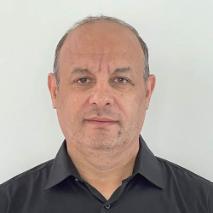 Dr. El-Kaderi embarked on his academic journey at Wayne State University in Detroit, Michigan, USA, where he obtained his Ph.D. in Inorganic Chemistry in 2005. He conducted postdoctoral research at the University of Michigan, Ann Arbor, and later at the University of California, Los Angeles. These experiences broadened his understanding of materials science and laid the foundation for his groundbreaking contributions in the field of Covalent Organic Frameworks (COFs). In 2007, Dr. El-Kaderi commenced his career as an Assistant Professor in the Department of Chemistry at Virginia Commonwealth University (VCU). Currently, Dr. El-Kaderi is the director of Sustainable Energy Systems at the Institute for Sustainable Energy and Environment (ISEE), VCU. His current research efforts are centered on porous materials design and synthesis, including porous organic polymers, covalent organic frameworks, and porous carbon for clean energy applications such as gas storage and separation and rechargeable batteries.
Dr. El-Kaderi embarked on his academic journey at Wayne State University in Detroit, Michigan, USA, where he obtained his Ph.D. in Inorganic Chemistry in 2005. He conducted postdoctoral research at the University of Michigan, Ann Arbor, and later at the University of California, Los Angeles. These experiences broadened his understanding of materials science and laid the foundation for his groundbreaking contributions in the field of Covalent Organic Frameworks (COFs). In 2007, Dr. El-Kaderi commenced his career as an Assistant Professor in the Department of Chemistry at Virginia Commonwealth University (VCU). Currently, Dr. El-Kaderi is the director of Sustainable Energy Systems at the Institute for Sustainable Energy and Environment (ISEE), VCU. His current research efforts are centered on porous materials design and synthesis, including porous organic polymers, covalent organic frameworks, and porous carbon for clean energy applications such as gas storage and separation and rechargeable batteries.
Patty Oikawa
Bill Shobe
-210x210.jpg)
Bill Shobe, an economist, is an Emeritus Research Professor of Public Policy at the University of Virginia. Until 2023, he was Director of the Center for Economic and Policy Studies at the Weldon Cooper Center for Public Service. His research concerns the design of practical, implementable environmental policies. He has published widely on emission market and auction design, environmental federalism, carbon removal technologies, electricity demand forecasting and deep decarbonization strategies for Virginia. In 2007, he worked on the team that designed the carbon allowance auctions for the Regional Greenhouse Gas Initiative (RGGI) and has worked on design and evaluation of the RGGI program, the EU ETS and the California cap and trade program for greenhouse gases. In 2000, Shobe received a Fulbright Fellowship in environmental economics and policy. Before joining UVA in 2004, Shobe was an associate director at the Virginia Department of Planning & Budget (DPB), where he coordinated state expenditure forecasts and the economic analysis of state regulations. While at the DPB, Shobe managed the design and implementation of the innovative Virginia NOx allowance auction. He also developed the Virginia Regulatory Town Hall website, the award-winning, first in the nation website for managing and publicizing state regulatory development.
5:30 - 5:45 p.m.
Concluding Remarks
Chair: Jayasimha Atulasimha, Qimonda Professor, Department of Mechanical and Nuclear Engineering, Virginia Commonwealth University
Srirama Rao, Vice President for Research and Innovation, Virginia Commonwealth University